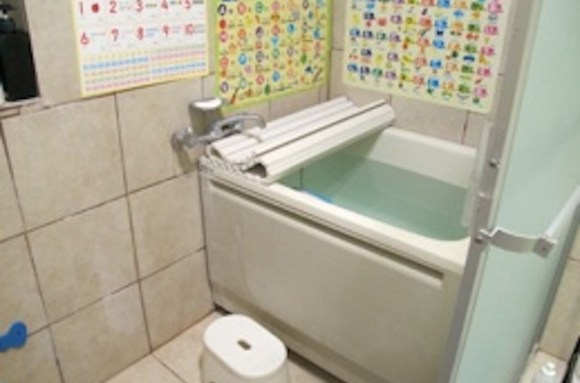
A survey out this week asked 200 salarymen – office workers in Japan – about their work and lifestyle habits. The findings have been reported in the Japanese media under headlines such as “The bad habits of low earners” and “People on a low income pee in the bath – but why?!”
But this kind of survey tells us more about the survey creator’s attitude towards low-income citizens, than it does about the employees who answered it.
The survey asked 200 salarymen earning less than 3 million yen (US $25,600) a year to answer “yes” or “no” to statements about their work and lifestyle. According to the National Tax Agency, 40 percent of Japanese workers have an annual income of 3 million yen or less.
The responses paint a picture of Japan’s lower-income office workers as inefficient, disengaged, and poorly dressed. 90 percent of the salarymen surveyed said they wear a suit that doesn’t fit, and 64 percent said their undershirt was visible under their dress shirt.
More worryingly, 30 percent said they sometimes go the whole day at work without talking to anyone, while 39 percent said they can’t open their desk drawers.
▼ Presumably, that’s because their desk looks like this, rather than because the boss won’t give them the key.
Investment consultant Tokio Godo says that these kinds of “bad habits” are the reason the poor stay poor. Japan’s widening income gap is “not just because they [people on a low income] have bad luck”, he says, suggesting that these lifestyle habits are the true cause.
But rather than ask people of varying incomes about their habits, and compare them, the survey only tells us about low-income people. We are then invited by analysts such as Godo to assume that these habits – some as innocuous as “I often lose one sock” (58%) – are the reason they don’t earn as much.
Telling us that low earners “often look at social networking sites while working” and “daydream during work hours” means nothing if we don’t know how many high income earners also do these things.
▼ Percentage of salarymen who answered “yes” to statements in the ‘Bad Habits of Low Earners’ survey. This is the section on work habits.
Looking at the percentage of “yes” responses may give us dramatic-sounding statistics, but doesn’t necessarily reflect the reality of people’s lifestyles. It looks pretty shocking that in a country famed for its punctuality, 87 percent of respondents answered “yes” to “I turn up slightly late for [work] appointments”. But that “yes” response could include someone who was a few seconds late once ten years ago and still feels guilty about it. Perhaps in hyper-punctual Japan, where if you turn up on time you are already late, self-reporting of lateness is higher than in other countries. When we don’t know what “yes” means, it’s hard to draw conclusions from this kind of survey.
75 percent of the 200 salarymen interviewed answered “yes” to “I pee in the bathtub”. “Doesn’t everybody pee in the bath?” commented one 29-year-old respondent, a cram school teacher. “It gives me a thrill, once I started I couldn’t stop”, said a 33-year-old fishmonger. Let’s hope they live alone, or are the last one to use the bathwater in their household.
We’re looking forward to the survey about what percentage of millionaires pee in the bath. Then at least we’ll have something to compare it to.
Sources: Yahoo News JP, Nikkan SPA!
Featured image: at-house